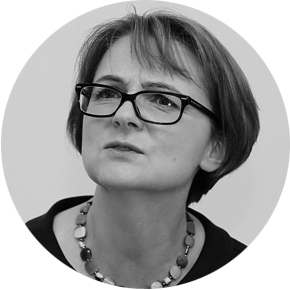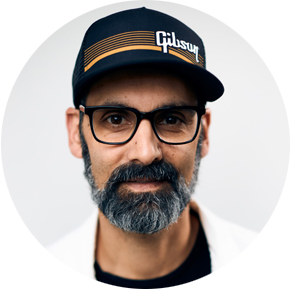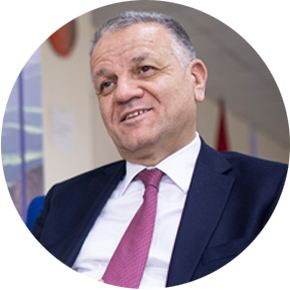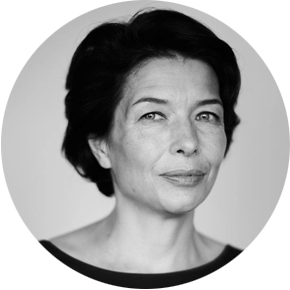Mediamax’s exclusive interview with outgoing Ambassador of the United Kingdom to the Republic of Armenia Katherine Leach
- Mrs. Ambassador, along with your spouse Jonathan James Aves you were appointed Her Majesty’s Joint Ambassadors to the Republic of Armenia from January 2012. You took turns to be the Ambassador to Armenia, each doing the job for four months. What kind of practice was this for you and how productive was this format?
- I can say very honestly that we had not worked like that before. Neither of us was quite sure how it would work, but in fact we both really enjoyed it and felt that it gave a great deal to the embassy every four months to have new ideas, new energy. I would say that it was kind of healthy competition. I hope that we were able to show that that kind of format could work and bring some advantages. We both brought different experience, different strengths. We are also very grateful to the government of the Republic of Armenia, the Ministry of Foreign Affairs for being open-minded enough to accept this format of working.
- You once noted that you managed to turn 2013 the best year for relations between Armenia and the UK. What did you mean by that? How would you characterize the current level of relations between our countries?
- It is difficult to pick one year when you are looking back on 3 ½ years, but I would say over these years we have achieved a lot, including on the political level. I think we really managed to increase, intensify and deepen our political relationship.
We had two visits by the UK Minister for Europe David Lidington, FM Nalbandian met with our Foreign Minister in London, as well as visits here by senior diplomats from the Foreign Office and Ministry of Defence. We had 3 parliamentary visits to Yerevan and a parliamentary visit from Armenia to UK. I feel that there is a real intensification. What else? Well, we are now working much harder to promote business. We have a trade and prosperity officer and we have really tried to push British business to think about Armenia as destination, a place to do business. Each year we have tried to celebrate British-Armenian business links. We have also thought creatively how to promote our ideas.
For example, we promoted the concept of responsible mining in Armenia, and UN SC Resolution 1325 on women, peace and security. We hope to do further work with the Ministry of Defense of Armenia this year to support the increasing role of women in the military. I am also proud that our embassy was NATO contact embassy in Yerevan for 3 years to support Armenia’s engagement with NATO.
Photo: Mediamax
Finally, one of my favorite projects, actually run by the British Council, supported by our Embassy: the development of the ‘Unlimited’ dance company, involving dancers both with and without disabilities. They did a fantastic performance in Armenia last year at the Small Theatre and they are working on a new performance this year together with British choreographers. They are sending the message that disability is no barrier to achievement.
- Mrs. Ambassador, the Armenian society extremely negatively accepted the fact that Charles, Prince of Wales, attended the ceremony to mark centenary of battle of Gallipoli in Turkey, while Great Britain was represented on the level of just the leader of British-Armenian Parliamentary Group at the official event dedicated to the Armenian Genocide Centennial on April 24. What steps can the UK take to eliminate this negative impression?
- I know how painful it was, and how people in Armenia felt about this clash of events. That’s certainly not what we wanted, because both events – the Centenary commemoration in Yerevan and the Gallipoli commemoration - were incredibly important for people to understand as different, terrible parts of the history of World War I. In Yerevan, the commemoration was for WW1’s most devastating civilian tragedy, the deaths of over a million Armenians. And for us, for the UK, Gallipoli is one of the key battles of WWI, one of the iconic symbols of the horror of war, because it was such a terrible campaign, where half a million Allied soldiers fought, a quarter of a million were killed or injured, tens of thousands of British soldiers died, as well as soldiers from many, many other countries. So it was important for us to mark that appropriately and for Prince Charles to meet the descendants of the soldiers who died. But it was also of course enormously important to mark the Centenary. I think the head of the British-Armenian parliamentary friendship group, Member of Parliament, Mr John Whittingdale (Conservative), who has now joined the Cabinet as Minister of culture, media and sport, was very proud to be here to represent the British government. Events later this year, particularly a commemoration service that will be organized by the Armenian embassy in London, at Westminster Abbey in October, will also demonstrate the importance for the UK of the Centennial commemoration.
- You were in Armenia during quite an important and complicated period when the EU Association Agreement was being negotiated over, but Armenia decided to join the EEU in the end. Earlier, at a meeting with the students of the American University of Armenia (AUA) you said that Armenia’s such a decision was a surprise for you and added that efforts should be committed to overcome that situation. How do you picture the future of Armenia-EU relations after the Eastern Partnership Summit in Riga?
- I think we are in a good place. The Riga summit confirmed that we are now ready to launch the negotiations on a new agreement which will be largely based on what we have already done for the Association Agreement. That work has not been lost. We will take a lot of it into the new agreement.
Photo: Mediamax
I am struck by how determined the Armenian government is to take this work forward. We, the EU, can only offer. We can’t impose anything, we can only offer opportunities. It is up to the Armenian government to decide what will be helpful and appropriate. Over the last year the Armenian government has been looking at its obligations under the EEU and at what we can offer to promote reforms using tools that we have available. And I think that both sides are ready to commit to something and take work forward. I actually feel optimistic and positive. Everybody has had a chance to take a breath and reengage again with a very positive spirit.
- The protests against electricity price hikes brought forth talks on the emergence of a new quality generation of the Armenian civil society. Do you agree with it?
Photo: Mediamax
- In some ways it felt like it grew out of the different civil activism movements that we have seen over the last few years: the 100 dram movement, protests on pensions reforms. I think for the first time a lot of new young people were involved, getting engaged, having a discussion. Our history has shown that citizens’ engagement in politics in peaceful ways can really make a huge difference. I am thinking about, for example, women getting the vote in the UK. Through peaceful protest policy change is possible. I was very struck by what people told me about the mood in the crowd, about the discipline – very peaceful, no drinking. I very much hope this will lead to positive dialogue, and both sides will find a way through this issue which will work for society, business and government.
- In 2013, Gyumri Music School N 6 opened in the frames of Rock Aid Armenia project with the participation of Ian Gillan, rock star and iconic lead singer for famous British rock band Deep Purple. How important are people-to-people contacts in diplomacy?
- I’m very jealous Jonathan got to meet Ian Gillan, and not me! I think people-to-people contacts are incredibly important. Individuals make all the difference. If somebody has enthusiasm, energy, new ideas, they can make a real change. So I think it is right when governments put a lot of focus on this issue. For example, we have programs like the Chevening scholarship, which this year is offering 7 scholarships for Armenians. In previous years we only had 3 scholarships. I am happy we could expand the program this year to encourage more people to go to UK, to study there, understand our country better, and learn something useful for their return to Armenia. It is an investment in Armenia’s future. At every level I have also tried to support British-Armenian Diaspora projects, because this is a huge source of energy and good will. I think you can’t underestimate people-to-people contacts in diplomacy.
Photo: Mediamax
- What impressions did you get from Armenia? What did this practice give you and what will you miss most?
- You can’t live and work here without feeling very moved by the people, the hospitality, the history, the mountains. I am going to take all that with me. When I leave I will really miss it. I feel I have become connected with the worldwide Armenian community. Wherever I go, I will look for Armenians and feel a strong warmth and understanding towards this Diaspora community. I feel like I have become a part of a global family, a network that I will definitely take wherever I go.
Yekaterina Poghosyan talked to Katherine Leach
Photos: Mariam Loretsyan


























Comments
Dear visitors, You can place your opinion on the material using your Facebook account. Please, be polite and follow our simple rules: you are not allowed to make off - topic comments, place advertisements, use abusive and filthy language. The editorial staff reserves the right to moderate and delete comments in case of breach of the rules.